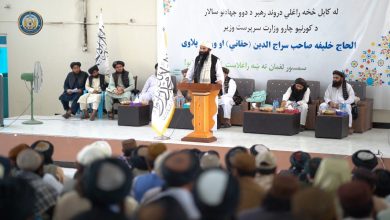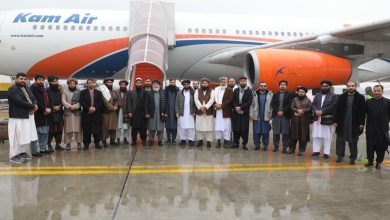
Report: ISIS Has Made Progress in Afghanistan under Taliban Control
Bayan News – Joseph Votel, former commander of US Central Command (CENTCOM), says that with the emergence of the Taliban in Afghanistan, ISIS-Khorasan Province (ISIS-K) has gained more power in the country.
The former American official told Business Insider that the lack of US military pressure and the Taliban’s inability have allowed ISIS to become a major threat.
Votel stated, “It won’t take long for these organizations to increase their activities and become more capable.”
The retired general continues to argue that the approach to combating terrorism has ultimately strengthened and made ISIS-K more flexible, with the group now focusing on expanding its influence in other regions.
According to Business Insider, prior to the Taliban’s takeover of Kabul, ISIS-Khorasan’s activities were limited to Afghanistan and had limited infiltration beyond the country’s borders. However, after the Taliban’s ascent, it gained more opportunities for expansion and took responsibility for attacks beyond Afghan territory, including the suicide attack on Qasem Soleimani’s commemoration ceremony in Iran and the concert hall attack in Moscow.
Business Insider stated in its report that without US military presence in Afghanistan, the options for combating ISIS are relatively limited. The report added that while the White House in the past emphasized a strategy beyond targeted airstrikes against terrorists using unmanned aircraft, there seems to be no evidence of the effectiveness of such a strategy.
This is despite the fact that senior Taliban officials deny the presence of ISIS in Afghanistan and claim that the group has been severely suppressed. However, Taliban security officials have recently announced that they have eliminated ISIS members in the provinces of Kunar and Balkh.
Deep Rift Among Taliban Leaders
According to the Associated Press, citing prominent analysts, a deep rift among Taliban leaders has been reported, and the divergent Eid messages from the two leaders indicate tensions within the group.
According to the report, Sirajuddin Haqqani, the Taliban’s interior minister, is seeking greater international support in contrast to the hardline stance of Hibatullah Akhundzada.
The media outlet states that the Taliban leader defended the imposition of Islamic laws in his Eid message and criticized the international community for its criticism of human rights violations.

In one of his messages, the Taliban leader directly addressed Western democracies and stated that women would be stoned in public.
In recent weeks, the Taliban has released two Eid messages from a figure referred to by Fox News as the “reclusive leader” of the Taliban, Hibatullah Akhundzada.
The first Eid message was a written statement issued on Saturday in seven languages, including Arabic, English, Turkmen, and Uzbek. In this message, he provided recommendations to the officials who control government institutions within the group.
The second Eid message was an audio file broadcast by the Taliban after the Eid prayer held at the Ghazi Amanullah Khan Mosque in Kandahar. The audio file, in the Pashto language, lasted about half an hour and had a fervent tone similar to previous statements by Hibatullah Akhundzada.
In the speech, he stated that he would never compromise on the implementation of Islamic law and that he was not willing to take a step back from enforcing Islamic Sharia.
The Associated Press wrote in its report that the analysis of the content of Sirajuddin Haqqani’s Eid message, however, indicates that he is pursuing a softer tone in order to attract international investment.
Ahmad Rashid, a Pakistani journalist and author who has written several books on Afghanistan and the Taliban, stated that both leaders are sending a strong message to Taliban members that despite Western pressures, nothing has changed.
Rashid said, “There is clearly a rift within the Taliban, but they are standing together. There are moderate elements who want to see women educated, but they are not in a strong position.”
Earlier, the interim Taliban government officials had acknowledged differences within the government but stated that such disagreements were normal within a government structure.







